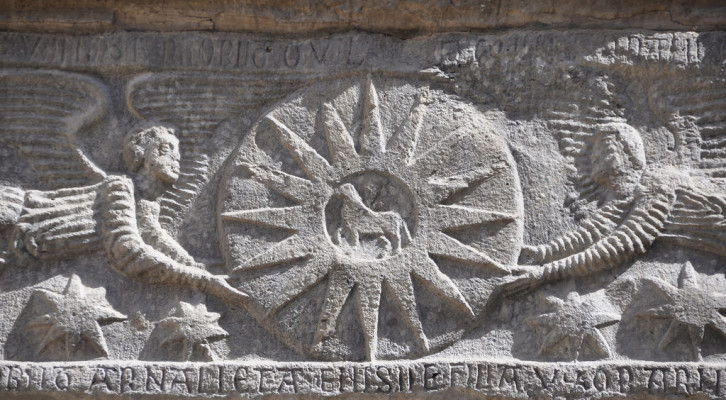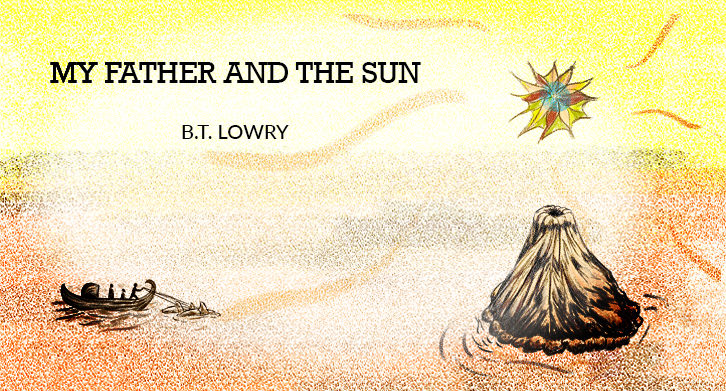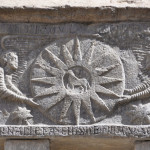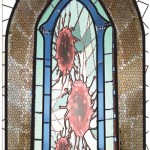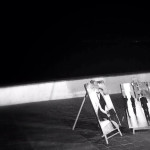“How do you know when you’re dead?” Demrick Fauston asked The Reverend Charles Spears, Rector of the Downtown Church of Our Savior.
It was the first time the developer had been in Spears’ study since a dispute over the endowment years before. With razor-cut white hair, a tailored suit, gold cufflinks and a red silk tie, he appeared as distant from the graying Episcopal priest in his frayed collar and rumpled tweed jacket as a seraph from a serf on the great chain of being.
“How can you be sure?” Fauston demanded, his pale blue eyes transfixing the priest as they had so many others in over fifty years of ruthless negotiations.
Charles Spears was one of the few who could meet those eyes without turning away. As if searching a lifetime of reflection on the subject, he studied the old man’s still-sharp features, transfixed with his vision of a medieval hell. Demrick Fauston had never married and still lived in the house where he was born.
“Can you tell me more about it?” The priest probed the bizarre question.
For decades, Fauston had prowled inner cities and bankruptcy courts for suitable investments, indifferent to his own neighborhood’s long decline. Like an alligator in shallow water, he studied his prey until it grew so used to him watching that it did not try to escape when he lunged. Satiated, he would turn to his collection of classical sculpture, now ranked among the finest in the world outside the Vatican and the Louvre. After he hired Pritzker Prize-winning architect D’Artagnan Fronde to design a new wing for City Art Museum to house his collection, the Metropolitan retaliated by raising nearly as much money to rebuild its own classical wing. To humanize him, the local newspaper sometimes mentioned the long ago disappearance of his brother Ralph and the conviction of a vagrant for his murder. Ralph’s body was never found.
“Maybe you lie there unable to move, thinking about how horrible it is,” Fauston said.
“Like someone with ALS?” Spears asked, to show that he understood.
“Yes, that’s it,” Fauston said, relieved by the priest’s compassion, placing his hands palms down on his knees.
Spears saw that the backs of the old man’s hands were black, a telltale sign that his doctors were trying to prevent another stroke with blood thinners.
“St. Paul says that while we are alive we are in Christ, and when we are dead we are in Christ.” Spears repeated the ancient formula that had comforted so many. “So whether we are alive or dead, we are Christ’s.”
Fauston shuddered. He did not want eternal life with anyone.
“Does it help if you aren’t embalmed?” he asked. “Maybe embalming preserves your mind so you can’t stop thinking.”
Whatever lurked behind the question would not accept what the church could offer. The developer was terrified of lying in his silk-lined mahogany casket like a spider stung by a wasp, waiting for the eggs to hatch and devour him.
“I’m not sure it would,” the priest said softly.
“What if you’re cremated?” Fauston persisted.
“Have you ever thought about confession?” Spears suggested. “We call it reconciliation now. Sometimes, getting something off your chest and receiving forgiveness helps relieve the anxiety.”
Demrick Fauston stared at the priest in open-mouthed horror, as if his descent into hell had already begun. Spears walked around his desk to sit beside a man in the upper reaches of the Forbes 400 — a man who was unable to buy himself out of his own hell. The priest placed his hand on Fauston’s arm while the old man wept. Like many of his generation, Demrick Fauston thought it was better to stand on the edge of hell alone than to reach out to another human being or to God.
“Charlie, we’re working on something special for the Tower,” Fauston finally said.
“Oh,” Spears said, letting him change the subject.
There would be no confession that day.
“Harris Scintilton is handling it for me.”
Fauston did not hear the priest catch his breath. Harris Scintilton, the church’s chancellor or lawyer, grew his estate practice by soliciting elderly parishioners at the after-church coffee hour and persuading them to impose their piety on their descendants through maniacally complicated trusts.
“He’ll call when we’re ready to talk.”
Most people invited to a meeting with Demrick Fauston and his attorney would consider it the opportunity of a lifetime. Charles Spears considered it an invitation to a moral disaster.
“I’d like that, Demrick,” he said to keep Fauston talking, even if he would not say why he was so afraid of lying forever sleepless in his own tomb.
* * *
Several weeks later, the Rector was tormented by the call retrieval feature on his new phone. When his secretary Debbie entered his study, Spears was trying to remember the code that would allow him to stop the message light from flashing.
“Mr. Scintilton is calling,” she said. “He says it’s very important.”
Spears looked at her helplessly.
“You have to hang up and pick it up again,” she explained.
In her late forties, dressed in a skirt and blouse ten years out of style, the divorced mother of two exuded the understanding and compassion that the Rector sometimes felt that he lacked. She waited by the door to be sure he followed her instructions.
“Hello, Harris?” Spears said, hoping that the call had been lost and that the lawyer would not redial.
“We’re all over here waiting,” Scintilton said. “Didn’t you get my voice mail?”
“We’re having some trouble with the new phones,” Spears replied, smiling to Debbie as she closed the door. “What’s going on?”
“Demrick Fauston is here to plan his funeral.”
Spears shuddered to think of the entrepreneur at the end of a long conference table contemplating his mortality with someone so devoted to the billable hour as Harris Scintilton.
“Has something happened?”
“He wants you to be involved with the planning. Can you come over here now?”
“Where’s that?” Spears asked, reaching for a note pad.
“Fauston Tower, 69th floor,” the exasperated lawyer replied.
To celebrate moving his law office into Demrick Fauston’s newest building, Harris had invited Spears, along with his top 100 clients, to his reception floor to sip wine and stare at the sun setting over the river.
“I think I can find it again,” Spears said, replacing the phone.
Two years earlier, the parking garage across the street was imploded in a plume of cement and asbestos dust, and trucks lined up for weeks to carry away the fragments. For many months, power shovels and bulldozers dug deeper and deeper into the earth, dumping the detritus of the city’s first two hundred years into still more trucks to layer the garbage at the city’s largest landfill.
A crane lifted steel beams to frame the structure and then lowered panels of preformed concrete into the frame for the floors. Inexorably as a pyramid raised by slaves in the desert, Fauston Tower inched skyward until suddenly it was crested with a dazzling aluminum crown. When illuminated at night, the crown appeared detached from the tower, like a scimitar raised to strike.
To contrast the ethereal upper stories with the tower’s base, the three story ground level façade was covered with white marble like a Renaissance palace. Gripping the aluminum handrail, Spears climbed the steps and passed through the revolving doors. A huge glass spiral hung over the alcove like an upside down Christmas tree ornament, and an atrium a city block long stretched back to distant elevators. Glowing green as corroded copper, a large circular indentation was cut into the ceiling like a dome that the builders had forgotten to open to the sky.
Along the east wall to his left were a bank, a coffee shop and a snack bar, fronted by café tables and chairs, like a Roman piazza beside a popular tourist attraction. The west wall was dominated by two massive pillars backlit with a bright yellow, suggesting the reflection of the setting sun or the beginning of an electrical fire. The exterior wall was extended outward between the pillars. Approaching the security desk by the elevators, Spears thought the design was distorted, as if a great mass were needed between the pillars to balance the empty space.
Harris Scintilton greeted him as the receptionist ushered the priest into the lawyer’s conference room just below the three penthouse floors that enshrined Fauston Worldwide Enterprises. “Water, Charles?”
“I’m fine,” Spears replied, not wanting to have to find the bathroom in an establishment of such magnitude.
Two of the attorney’s shave-headed associates, present to push the combined hourly rate into four figures, stared at him as coldly as Secret Service agents watching a third world delegation approach the President. Behind a conference table piled with drawings stood a heavyset man with Mediterranean features and a white shirt open to display a dazzling golden medallion. Like Caesar on his dais, Demrick Fauston sat at the head of the table, caressing one of the drawings.
“Charles, meet D’Artagnan Fronde,” Scintilton introduced the heavyset man. “Darty is the project designer.”
Darty beamed a practiced professional smile that would have made the Hidden Imam believe that his secrets were safe with him. It was the same smile that had graced the covers of Connoisseur, Fortune, and People, and bantered with talk show hosts and entertainers at a thousand glittering galas.
“And you know Mr. Fauston.”
Spears had to touch the old man’s shoulder like a patient in a nursing home to get him to look up from the drawing.
“Oh, hi, Charlie,” Fauston finally said.
“We’re just about to begin the project overview,” Darty began, raising his arms like a conductor before a captivated house.
“And then?” the Rector asked.
“Then we’ll talk about your part in it, the procession from the church and the internment ceremony,” Scintilton replied.
“And the guest list and the seating chart,” one of the associates put in.
“And don’t forget the plan to close the street and divert traffic so the procession is not interrupted,” the other associates added.
“What?” exclaimed Spears.
He imagined a funeral procession like that of the ancient Romans, where slaves marched in solemn procession carrying death masks of the decedent’s ancestors, or the lavish parades of condottieri and clergy through Renaissance Florence.
“You have to agree, Charles, that it would be unthinkable to interrupt Mr. Fauston’s funeral procession for a traffic light,” Scintilton said.
“Sit here beside me,” the developer instructed the priest. “This is what it’s going to look like.”
Like an after dinner speaker waiting for the last guest to return from the restroom, Darty did not begin his presentation until the priest was seated. Then he began slowly and softly with an overview of funerary art from the steles and epigrams of the ancient Greeks to the Mausoleum of Hadrian, so large that it was converted to a fortress and renamed Castel Sant’Angelo, and then on to the tombs of the Renaissance Popes and finally down to the sorry plaques and tombstones that littered contemporary cemeteries. Fauston did not look up. He was fixated upon a drawing of a three story classical façade with a niche for a colossal figure. Spears had no doubt who the colossus would be.
“Is this all for you?” Spears asked the old man.
“Shh, Charlie,” Fauston whispered, as testy as a Medici Pope reminded that all the indulgences in Christendom could not finance a marble rendering of his hallucinatory self-conception.
“And may I say, Mr. Scintilton, who the sculptor will be?” Darty asked softly, awaiting the attorney’s approval to proceed.
Harris looked at his client and nodded his head.
“Michelangelo Dole!” Darty cried and paused, awaiting an enraptured exclamation from the priest.
Spears had watched part of a PBS show about Michelangelo Dole, née Mike Dole of Newark, New Jersey, reputed to be the finest marble sculptor since Michelangelo Buonarotti. Dole had disappeared from public view after accepting a $100 million commission from an unnamed client, plus the buyouts of his existing contracts — reputedly for another $50 million. Spears remained silent, as he often was when confronting madness or impending death.
Voice soaring into his peroration, Darty reached into the pile of drawings and extracted a rendering of the colossus that would dominate the tomb. For a second Spears expected Fauston to appear like Verrocchio’s Colleoni astride a war horse, face set in the soldier’s grimace the moment before battle is joined. Instead of a mounted mercenary, however, the designer offered a three-dimensional rendering of a young man in classical armor standing above a huge sarcophagus. Convulsed with grief, he was looking down with outstretched arms, right hand open and left fist clenched, toward two contorted figures on the sarcophagus. The one to his right, his own age, was raising himself on one arm like the Dying Gaul and reaching up with the other toward the colossus, but the figure to his left was on his back, one arm draped over the edge of the sarcophagus, mouth frozen in death. Looking closer, Spears saw that the dead man was African.
“Charlie?” Demrick Fauston said. “He’s asking you something.”
Spears looked up.
“Is there a problem with the drawing?” Darty repeated.
“Where are you going to put this?” he asked.
“In the atrium.”
Spears turned to the old man. With this monument to megalomania, he was going to convert the lobby of a skyscraper into a contemporary version of the Medici Chapel.
“Why on earth are you doing this, Demrick?”
“So after I’m dead, people will understand what I’ve been through.”
“What have you been though?”
Fauston looked away from the drawing.
“Who are the figures?” Spears pressed him.
“Achilles,” Fauston said proudly, pointing to the statue above the sarcophagus.
The priest nodded. Like Homer’s hero, Fauston had run through his life in a rage.
“Why is he weeping?” Spears asked.
“Someone he loved has died,” the old man replied so low that the priest could barely hear him.
“Mr. Fauston himself asked for an Achilles,” Darty added in a voice that would have charmed Clement II.
“And the others?”
The country’s most successful developer shuddered. For a second, Spears thought he had had another stroke.
“They don’t have names,” he whispered.
“Let me try,” the priest persisted. “The Dying Gaul is Patroclos, Achilles’ companion, after he was struck down by Hector. And the one who is already dead, the African, is Hector, after Achilles killed him.”
“No,” Darty interjected. “They are allegorical figures of Death and Resurrection.”
“They look more like Death and Vengeance to me,” Spears said.
Fauston’s lower lip was moving, as if he were trying to utter a forgotten word.
“We can’t talk about those, Charlie,” Harris Scintilton attempted to rescue his client.
“Demrick, are you alright?” Spears asked.
“He knows,” Demrick Fauston gasped, pointing a shaking finger at the priest.
“Impossible,” Scintilton said.
“He knows!”
The conference room was as silent as a sealed mausoleum.
“Leave,” the lawyer said to his two associates.
The young men stared at him.
“Now!” the lawyer snapped.
The associates grabbed their notepads and nearly tripped over their chairs hurrying out.
“You, too, Darty,” Scintilton turned on the project manager.
“Monsieur?”
“This is attorney-client privilege,” the lawyer said.
Stunned speechless, D’Artagnan Fronde threw an Italian jacket over his shoulders and stalked after the associates into the corridor. The patron for whom he had envisioned the boldest tomb since Michelangelo’s unfinished monument for Julius II pressed a drawing to his face so that the others would not see him weep.
“Damn it, Charles, we were here to plan the entombment, and look what you’ve done,” the lawyer said angrily. “Don’t you understand we’re on a schedule?”
The priest didn’t understand anything. Shrouded in drawings for his tomb, one of the richest men in the world laid his face on the inlaid table and sobbed.
“Should we talk, Demrick?” Spears said softly.
“He won’t tell you anything,” Scintilton said with a lawyer’s confidence that a dying prince would only confide in his consigliore.
More minutes passed, and slowly the sobbing ebbed. Scintilton stood up and went across the room for a glass of water for his multi-billion dollar client.
“Later,” a voice from under the drawings whispered so low that only the priest could hear.
When they left the conference room, Demrick Fauston was again the man who built the largest office parks in the country and whose name graced more towers than any other developer in the world. They parted at the elevator bank, Spears to return to the church, Scintilton to his office, and Fauston to ascend to the upper reaches of his empire. His smile was fixed and his skin was taut, as if he had just demolished another adversary in a negotiation. Only a slight redness in his eyes showed that he had been crying.
* * *
“Look what Mr. Scintilton dropped off for you,” Debbie said when she brought in the mail a week later. “Mr. Fauston is on the cover of Forbes magazine.”
The priest did not respond.
“Are you alright?” Debbie asked.
“I just slept badly,” he said, trying to smile.
“Do you want me to hold your calls?”
“I’m alright,” the priest repeated. “What’s that?”
She was holding something that looked like the oblong tortoiseshell compact his mother had once carried.
“My new iPhone,” she said excitedly. “You can do everything with it: take pictures, surf the web, record meetings, just everything.”
“Even make calls?”
“Even make calls,” she smiled, closing the door.
Reading about Fauston would pass the time until lunch, Spears thought, and then he could take a nap, and the world might start to come back. The article was a paean to Demrick Fauston’s triumphal vision of skyscrapers with higher spires than the heavenly Jerusalem, now culminated in Fauston Tower. Blurred numbers of acquisitions and square footage and astronomical rentals stretched across the pages, all tribute to Fauston’s iron will and $17 billion in cash going into the 2007 recession that had enabled him to triple his holdings. In the only interview the developer had ever permitted, the old man attributed everything to his rigorous upbringing and determination to overcome the tragic loss of his younger brother.
“The day I had to identify the murderer in court was the worst day in my life,” Fauston had told the breathless reporter, admitting a temporary weakness that no one who dealt with him would ever suspect.
The testimony of a white man — one that said he had seen a black man stalking his brother the day he disappeared — was enough to send the black man to the electric chair.
There was a snapshot of the Fauston boys wearing the pleated pants and open collared sport shirts of the early 1940s. Proud, superior, almost sneering, the older son was clearly recognizable as the man he would become. The caption identified the other as his murdered brother Ralph. Spears stared at the snapshot until the face of the younger boy came into focus. It was the face of the Dying Gaul on Fauston’s tomb.
* * *
“We should talk,” Spears said.
After dialing the wrong number twice and waiting five minutes for his call to get through Fauston Enterprises’ phone security, he had finally reached the founder.
“I hoped you would call, Charlie,” the old man said. “Here?”
“No,” the priest said, surprised that his voice was so firm. “Why don’t you come over here again?”
Ten minutes later, Debbie ushered Demrick Fauston into the Rector’s study. Face gray from a lack of sleep, Fauston gripped the arms of the guest chair like an invalid leaving a walker.
“Why are you putting a statue of your brother on your tomb, Demrick?” the priest began.
“If only you knew what I’ve been through,” Fauston said, turning away.
“And the other figure,” Spears said. “Who’s he?”
Fauston put his hand over his eyes.
“He’s the man you testified against at the trial,” the priest continued. “The one you said you saw following Ralph down the alley the afternoon he disappeared.”
Demrick Fauston shuddered.
“Why didn’t you call the police or go after them?” Spears pressed him with questions that the long ago prosecutor, eager for a conviction, had avoided.
“Is this, what do you call it, confidential?” the old man whispered.
“As long as you don’t tell me you’re going to murder somebody,” Spears automatically repeated the formula he always used when tormented parishioners wanted to confess.
“I have, Charlie.”
“You have what?”
“I killed my brother, and then I sent that other guy to the chair for it.”
Fauston doubled over. Spears felt his chest tighten and time slow down. To break the spell, he stood up and pulled the other guest chair beside the old man.
“What happened?” Spears asked.
“My father was at his factory and my mother was at the store, and I was in the backyard, practicing my golf swing. Ralph came up behind me. I didn’t know he was there until I hit him.”
He could not go on.
“Why didn’t you tell someone?”
“It would have killed my parents if they knew what I had done.”
“But it was an accident,” Spears said.
“Yes,” he choked. “But that wouldn’t have mattered to them. I killed my own brother.”
“And the man you testified against?”
“He used to hang around the neighborhood looking for odd jobs and asking for handouts. Everybody knew he wasn’t right.”
Fauston started to sob.
“And all the marble is supposed to make that go away,” the priest said, almost to himself.
“If I tell them, Charlie, they’ll put me in jail.”
“If you don’t, you’ll spend the rest of your life, and I don’t know what else, in hell.”
The old man finally looked at him.
“Harris Scintilton won’t let me.”
“There are other lawyers beside Harris Scintilton, Demrick.”
* * *
Two days later, Spears sat beside Demrick Fauston and his new lawyer, Anderson Page, in Fauston’s living room. Page, the sleek managing partner of Saloughby and Wales, archrival to Harris Scintilton’s firm, was accompanied by a grinning, overweight criminal law specialist in a seersucker suit and paisley bow tie, plus two high-rate associates tapping pens against empty legal pads. Every few minutes, Fauston’s butler would circulate with bottled water and coffee refills.
“How the hell long does it take to dig up a crawl space?” the heavyset man said.
No one answered. Spears had forgotten his name. Through the picture window, they watched police officers carrying plastic containers of dirt across the front lawn to a trailer marked “Crime Lab.” The heavy set man got up, went outside, smoked cigarettes, and watched the officers sifting through the dirt. Promptly at noon, the butler returned with plates of chicken croquettes in cream sauce accented by bright green peas.
“I don’t like burritos,” the heavy man said. “Can’t you find me some chicken salad?”
In the middle of the afternoon, a detective and two uniformed officers, covered with dirt, entered the room. The associates raised their tablets like assault weapons, and the heavy man cracked his knuckles.
“Time to rock and roll,” he said.
“Well?” asked Anderson Page, poised on the edge of the most important representation of his career.
“There’s nothing there,” the detective said.
“What did you say?” Page exclaimed.
“There’s not a fucking thing down there.”
Everyone looked at Demrick Fauston. His mouth was open, but he did not speak.
“Nothing?” the old man finally said.
“Not even a finger bone.”
“You’re not going to get all pissed off about this, are you?” the heavy man said, to deflect or invite a charge of making a false report to the police.
The detective looked at the developer.
“Mr. Fauston, this one’s on us. Just don’t screw with us again.”
Shaking his head, the heavy man followed the officers to the front door, with the associates close behind.
“I’ll send you the bill,” Anderson Page said to Demrick Fauston in parting.
“Charlie, I don’t believe it,” Fauston said when they all had gone.
“Is everyone finished in the basement?” the butler asked when he returned for the dishes and empty water bottles.
“I want to check,” Fauston said.
Spears followed him down the kitchen stairs to the basement and through the laundry room to the space under the garage, where a chest-high rectangle opened in the basement wall. A light bulb on a cord was lying on the floor. Fauston shone it into the crawl space. Six feet of dirt had been removed, leaving only stained concrete blocks. It was as empty as a looted tomb.
* * *
Demrick Fauston was in the waiting room of the Rector’s study the next morning when Spears arrived. Debbie had set an untouched cup of coffee on the table beside him and had returned to programming her new iPhone.
“Harris called me,” the developer said before the priest could open the door to his study. “He wants to talk.”
“I thought you fired him,” the priest said.
“No, Charlie. He says I can’t.”
“Are you going?”
“I have to.”
Suddenly Spears realized that one of the richest men in the world had less control of his own life than his own secretary.
“Debbie, didn’t you tell me your new phone could record conversations?” the priest asked, turning to her.
She was as surprised as if he had asked her for a date.
“Yes.”
“Can you set it on record?” Spears continued.
She did something to the phone.
“Put it in your jacket pocket, Demrick,” Spears said. “How much time do we have, Debbie?”
“At least an hour. I charged it last night.”
“Better get going, Demrick,” Spears said. “I’m anxious to hear what Harris has to say.”
* * *
An hour later the priest, the developer, and the secretary were sitting around the coffee table in Spears’ study, listening to the conversation on Debbie’s iPhone.
“I don’t know why I’m here,” Demrick Fauston began. “You’re not my lawyer anymore.”
“You’ll always be my client, Demrick,” replied Harris Scintilton. “Unless you’d like me to have you probated.”
“What do you mean?” the old man gasped, barely audible.
“After that farce with Anderson Page yesterday, you don’t have any credibility left. Everyone in town thinks you’ve lost it. I’ll call Page and the police as my star witnesses, and you’ll spend the rest of your life in an Alzheimer’s ward.”
“Harris, you wouldn’t.”
“I’ve been worried about you for a long time, Demrick. First all that crazy talk about a body in the crawl space, and then that ridiculous tomb, and now confessing to the police. Lucky for you that you gave me your power of attorney and made me your executor. Without me, you’d lose everything.”
“There was a body in the crawl space,” the old man insisted. “I put it there.”
“Of course you did. I saw it.”
“You saw it?” Fauston exclaimed.
“Remember how you gave your household staff two weeks off when you went on your last trip to China?”
“I remember.”
“I’m not the kind of lawyer who’s afraid of getting his hands dirty, Demrick. The space was tight, but he wasn’t very deep. You must have been in a real hurry when you buried him. He’d been there long enough it was easy to pull out the pieces and stuff them into trash bags. So don’t worry about poor brother Ralph anymore. They’ll never find him. He’s under a few hundred tons of garbage at the landfill.”
The old man groaned.
“I don’t know why you didn’t do it yourself a long time ago,” the lawyer continued. “Why waste your life in an old house with all those bad memories? If you have a problem, deal with it. Did you fall in love with your own legend, the billionaire who still lives simply in the old family home, or did you enjoy feeling guilty?”
“Turn it off, Debbie,” Spears said. “Can you transcribe it?”
“Sure. And I can save it to my computer, and you can email it wherever you want.”
“I didn’t know you could do that,” Spears exclaimed, amazed at all the device could do. “I’d like to email it to Harris Scintilton.”
She smiled and left the room.
“What did you say you call confession these days?” Fauston asked.
“The Reconciliation of a Penitent,” the priest replied.
The phone rang.
“It’s Mr. Scintilton,” Debbie said. “He says it’s urgent.”
“Tell him I’ll call back,” Charles Spears said, hanging up the phone. He picked up his Prayer Book and handed another to Fauston.
“Here, Demrick,” he said, sitting down beside him again and opening to “The Reconciliation of a Penitent.”
“It begins at page 447.”
—-
FRED McGAVRAN is a graduate of Kenyon College and Harvard Law School, and served as an officer in the U.S. Navy in Vietnam. After retiring from the practice of law in 2010, he was ordained a deacon in the Diocese of Southern Ohio, where he serves as Assistant Chaplain at Episcopal Retirement Homes. The Ohio Arts Council awarded him a $10,000 Individual Achievement Award for “The Reincarnation of Horlach Spenser,” a story that appeared in Harvard Review. Black Lawrence Press published The Butterfly Collector, his award winning collection of short stories, and his historical novel The Arminius Codex: The Hunt for the Last Roman Eagle is on Amazon Kindle. For more information and links to stories, please see www.fredmcgavran.com.
photo credit: Girona. Collegiate church of St Feliu. Tomb of Guillem Arnau de Clarí and his daughter Arnaleta (around 1200) via photopin (license)

